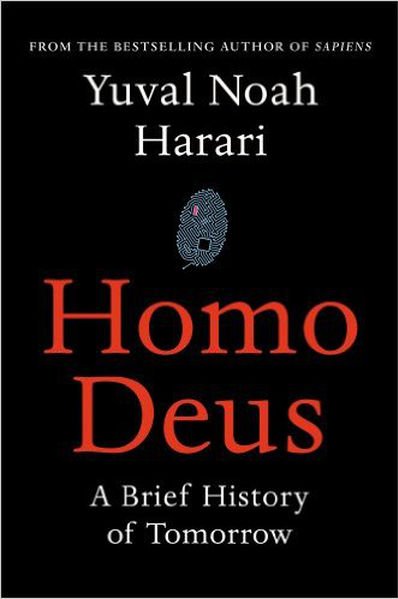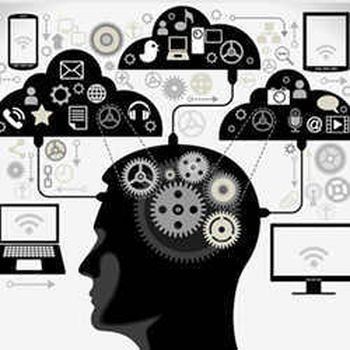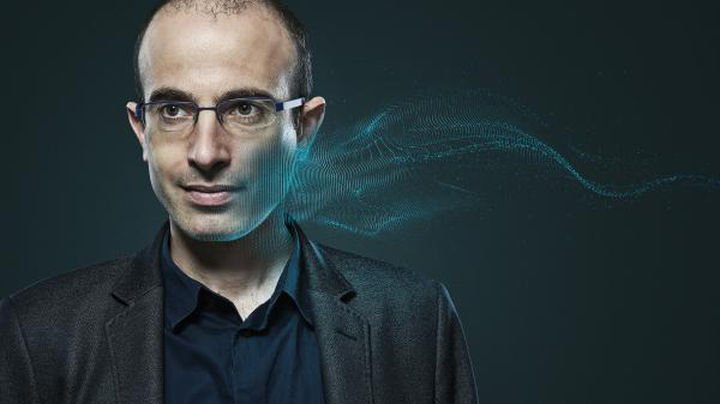
Homo Deus by Yuval Noah Harari is one of those books that leaves you reeling and perplexed, stimulated and energised, yet wondering, “What on earth are we supposed to do?”
In 400-odd pages of world history, socio-political analysis, intriguingly vast content and countless examples, Harari presents the reader with “A Brief History of Tomorrow”. Given where we’ve come from and where we are now, where are we headed as humanity?
I picked up this book expecting to be bombarded with the latest super-human developments in AI and a warning that if we aren’t all learning to be software engineers, we’re all screwed. He touches on this theme towards the end of the book, but spends the better part it demonstrating how we got to where we are now, tracing “the origins of our present-day conditioning, in order to loosen its grip and enable us to act differently and think in far more imaginative ways about our future.”
If you’re one of those readers who doesn’t mind skipping pages to get to the “meaty part” – bearing in mind that the entirety of Homo Deus is like eating a triple-decker burger in one mouthful (apologies to the vegan author) – then I’d say you’re good to go by flipping to page 258 and beginning with “The Humanist Revolution”. I found the last 100 pages the most intriguing.
Let’s jump straight to the parts which are sure to get you thinking:
1. THE HUMANIST REVOLUTION... AND THE DEATH OF THE SELF
“Science and religion are like a husband and wife who, after 500 years of marriage counselling, still don’t understand each other.”
Harari says that the greatest scientific discovery was the discovery of ignorance. In the past, our understanding of knowledge progressed something like this:
- “The Vatican was the closest thing 12th century Europe had to Silicon Valley”: KNOWLEDGE = Scripture X logic
- The scientific revolution: KNOWLEDGE = empirical data X mathematics.
- The humanist revolution: KNOWLEDGE = experience X sensitivity.
Humanist thinking aims to fully develop our knowledge through a wide range of intellectual, emotional and physical experiences which bring about a gradual inner change from ignorance to enlightenment.
The modern world as we know it has been largely shaped by liberal and humanist ideas, which can be summarised in three main points:
- Individualism is king. “Individual” literally means indivisible. From an individualist perspective, underlying the many layers of the self we find the clear, inner voice of the “true self”. Thus we encourage people to meditate and follow their dreams, because to live out of the true self is to live in the best possible way.
- The “authentic self” is absolutely free.
- Following these two assumptions, liberalism grants individuals complete autonomy because only I can know what I really feel and what I really want. The voter knows best, the customer is always right and beauty lies in the eye of the beholder.
Humanism, according to Harari, has run its course. The life sciences now point to a very different picture of reality:
- Organisms are algorithms and humans are not individuals – we are an assemblage of DNA algorithms, experiences and influences that lack a coherent inner voice.
- Therefore, we are not free. We are shaped by genes and environmental pressures and make decisions either deterministically or randomly, with nothing in between.
- It follows then that an external algorithm could theoretically know me better than I know myself. An algorithm could monitor my heart and brain from the day I am born and store vast amounts of data on exactly who I am, how I feel and what I want. Thus, once developed, the algorithm will always know best and the algorithm will always be right.
Whereas the twentieth century was the age of the masses, where every human was seen as essentially equal in value – deserving universal healthcare, education and state protection – Harari envisions a future in which the domination of algorithms and the upgrading of human beings shifts our philosophical approach away from humanism. Very pertinently, he asks, “How will liberal beliefs survive the appearance of superhumans with exceptional physical, emotional and intellectual abilities?” If our historical treatment of those we have deemed as “lesser beings” is anything to go by, then we had best be scared. Harari projects that this “superhuman caste … [may well] abandon its liberal roots and treat normal humans no better than nineteenth-century Europeans treated Africans.”
2. SO WHAT NEXT? THE GREAT DECOUPLING
Up until now, we have always assumed that great intelligence is found in the most conscious of beings. But algorithms and artificial intelligence are challenging that. For the first time in human history, pure intelligence can exist, decide and act and is no longer coupled to consciousness (for more reading on this, check out Daniel Dennett’s Consciousness Explained.)
Intelligence simply comes down to pattern recognition. In Homo Deus, Harari tries to show that “Dataism” is taking over as the next big social idea, or “religion”, as he puts it. Humankind is a single data-processing system – the crux of life is the movement of information. What is the difference between a human and a chicken? Only that in humans, information flows in much more complex patterns; in everyday terms, this manifests in deeper emotional, intellectual and creative abilities. But if we could create a data-processing system that is more complex than humans, wouldn’t that system then necessarily be superior to humans?

3. CUE THE USELESS CLASS
Are we teaching today’s children the creative skills to constantly re-invent themselves in an ever-changing world? Are the children of Bangladeshi textile workers being prepared now to become software engineers, so that in the very near future, when their parents’ jobs no longer exist, they still have economic value?
The answer to this is no. We are not at all prepared for the realties that the majority of jobs – not just the manual ones, but the thinking ones too – will be taken over by AI. Consequently, we can expect that a large portion of the world’s population will slip into economic uselessness – a harsh term that says it like it is. Harari describes this as “people devoid of any economic, political or even artistic value who contribute nothing to the prosperity, power and glory of society. This useless class will not merely be unemployed – it will be unemployable.”
We think we know inequality now? Picture a world in which only a handful of elites – or even worse, as Harari projects, algorithms themselves – own the resources that run our world. He rightly points out that just as non-real entities such as states and corporations are seen as legal persons now, so might algorithms come to have a similar standing in society in the very near future. With phenomena like deep learning, we are already at a loss as to how the machines we have created are able to “think” and recreate themselves.
A few examples:
In May 2014 the Hong Kong venture capital firm Deep Knowledge Ventures appointed an algorithm named VITAL to its board, complete with voting rights and veto powers. VITAL gets to vote on whether the firm should invest in specific companies or not, basing its opinions on a meticulous analysis of huge amounts of data. Unsurprisingly, VITAL has already recommended investing in companies that give algorithms far more authority.
David Cope, the musicology professor at the University of Santa Cruz, created a computer programme called EMI (Experiments in Musical Intelligence) which specialises in imitating the style of Johann Sebastian Bach. But of course there was criticism. Some people who listened to EMI’s performances later said that the music felt “soulless” and “lacked the human factor”. So Cope put this to the test, and arranged a musical showdown where three pieces would be played one after the other: one by Bach, one by EMI and then one by the critic Professor Steve Larson from the University of Oregon. The result? The audience thought that EMI’s piece was genuine Bach, that Bach’s piece was by Larson, and that Larson’s piece was produced by a computer.
Cope has gone on to create a new algorithm called Annie which incorporates machine learning. He cannot ever know what Annie will compose next, and what is more, Annie has delved into other art forms too, such as haiku poetry. In 2011 Cope published Comes the Fiery Night: 2,000 Haiku by Man and Machine, in which Annie’s poems are interspersed with those written by human poets, but it is never disclosed which.
So unfortunately, even people who say that art and creative expression will forever remain human – think again. The machines have beaten us to it.
Some educators are waking up to the fact that we have no clue what we ought to be teaching our children. The pressure is no longer to create more jobs, but to create jobs that humans can do better than machines. That margin is narrowing by the day. Studies on the likelihood of professions being taken over by algorithms paint a very bleak picture:
- There is a 99% probability that human telemarketers will lose their jobs in the next few years.
- Truck drivers? Self-driving cars are on the brink of “normal”.
- Sports referees? Goal line technology.
- Interpreters? Voice recognition and translation software.
- Doctors? A computer algorithm can correctly diagnose 90% of lung cancer cases presented to it, compared to 50% by human doctors. Unlike doctors, algorithms can sift through tons of data in just seconds, and never need a break.

These are just snippets of the kind of content that is packed into Homo Deus. It is a book that never ceases to amaze you; yet perhaps what gives it such impact is that beneath all the wowing facts and scary projections, it tells the simple story of human existence. Harari has an amazing ability to simultaneously see the finer details and the bigger picture. While readers may not like everything they are told, they will at least appreciate that this book gives a deep and gripping reflection of where we are right now as humanity.
If you have any interest in understanding your place in society as well as understanding where it is going, then this is a book you should read. And, what is more, if you want to ever play a decisive role in shaping just what that society will look like, then this is a book you need to read.